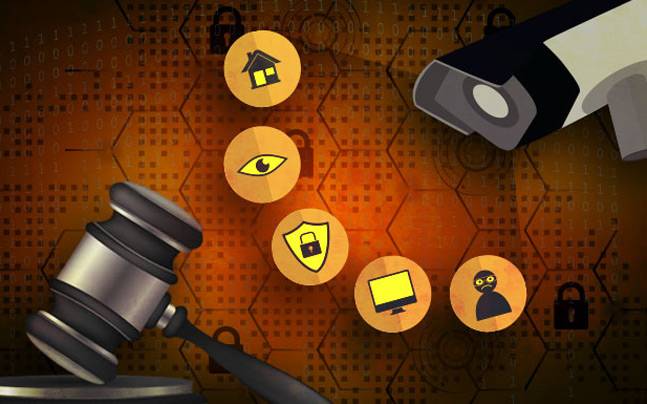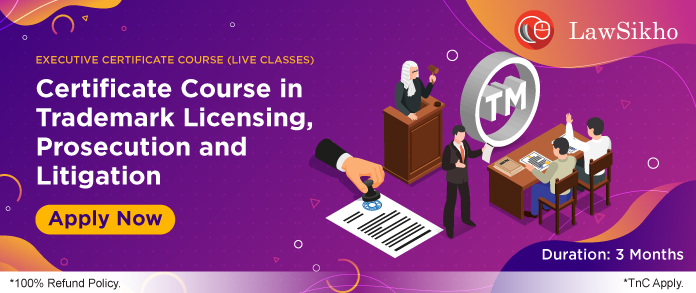This article is written by Swarnendu Chatterjee and Khushboo Kejriwal. This article deals with the concept of right to privacy in relation to voice sampling which acts as an instrumental piece of evidence specially criminal cases and proceedings. The cases of Puttaswamy and Ritesh Sinha have been discussed so as to arrive at a conclusive result with regards to the topic.
Table of Contents
Introduction
The right to privacy since the very beginning has been an intrinsic part of the fundamental rights which have granted to all under Part III of the Constitution of India, 1950. Though not explicitly mentioned in the supreme legal text of India , the right was always acknowledged here and when by way of a series of judicial pronouncements. Various dimensions of the right has developed over the years but it was the landmark case of Justice K.S. Puttaswamy (Retd.) v. Union of India that the right to privacy was considered as being an essential extension of the right to life and personal liberty under Article 21 of the Constitution of India, 1950. Since the right to privacy is within the ambit of Article 21, it is essential that it is weighed on the highest possible pedestal and the government must refrain itself to the maximum extent possible from infringing these rights in times of need. The crux of the matter is that the infringement of the right to privacy must be prevented until and unless it is the only possible solution to a problem.
A voiceprint is an essential forensic tool for identifying a speaker and is mainly used for corroboration to help in determining culpability of a person. A voice sample for the purpose of forensic research necessitates the availability of the sample in question and the reference sample, which is that sample from which the other sample is compared in the investigation for arriving at a conclusion. In the criminal domain, the sample in question is secretly collected either by the state authorities and under certain circumstances by a private person and is thus likely to attract the issue of infringement to the right to privacy. Also for the purpose of matching voice samples, the collecting of voice samples gives rise to the debate on the matter of fundamental right against self-incrimination.
Voice samples no doubt act as an essential piece of evidence in criminal proceedings but compelling a person to give his voice samples in simple terms would amount to the infringement of Article 21 as one’s voice is an intrinsic part of his or her persona. Moreover, compelling one person to give his voice sample for the purpose of investigation is equivalent to compelling him for becoming a witness against himself which is a violation of the person’s fundamental right under Article 20(3) of the Constitution of India, 1950 . These issues have been raised and dealt with in several cases but the most detailed explanation has been rendered in Ritesh Sinha v. State of Uttar Pradesh .
Judicial Pronouncements on Right to Privacy and Voice Sampling
In Ritesh Sinha v. State of Uttar Pradesh, an FIR was filed against the appellant for its alleged engagement in collecting money from different people by promising of employment in the department of police. For matching the voice recording found in the mobile phone seized from the accused, the investigating agency was allowed by the trial court to take voiceprint of the accused. The accused in the aforesaid matter approached the Allahabad High Court but the appeal was dismissed. As a result, a Special Leave Petition was filed before the Supreme Court.
The legal questions which were to be addressed in the issue of taking voice samples are as follows:
- Firstly, whether compelling one to submit their voice sample during investigation means to infringe their right against self – incrimination guaranteed under Article 20(3) of the Constitution?
- Secondly, whether the present procedural laws in India have such provisions which enable a magistrate to order for the recording of a voice sample?
- Thirdly, whether such orders seeking voice samples are any threat to the concept of informational and bodily privacy?
The Supreme Court quoted the case of State of Bombay v. Kathi Katu Oghad whereby it was laid down that Article 20(3) of the Constitution of India, 1950 does not mean that an accused shall not be compelled to be a witness. It rather says that such a person shall not be compelled to be a witness against himself. The judgment concluded that Article 20(3) only protects the accused from being forced to convey any piece of information based upon his or her personal knowledge. It does not protect the accused from giving any material or documentary evidence as such evidence is used for the purpose of making comparisons between evidences rather than acting against the interests of the accused. The Apex Court also found that no such provision existed which would allow a Magistrate or an investigating agency to direct an accused to give his or her voice samples in spite of the recommendations made by the Law Commission with regards to the same and the subsequent amendments made in the Criminal Procedure Code, 1973 with regards to handwriting and other type of samples from the body.
For answering the most essential question dealing with personal autonomy , the Supreme Court referred to the landmark case of Selvi v. State of Karnataka which declared that the narco analysis test or the lie detector test is ultra vires the constitution. The Apex Court remarked that:
We must recognise the importance of personal autonomy in aspects such as the choice between remaining silent and speaking . An individual’s decision to make a statement is the product of a private choice and there should be no scope for any other individual to interfere with such autonomy , especially in circumstances where the person faces exposure to criminal charges or penalties . Therefore , it is our considered opinion that subjecting a person to the impugned techniques in an involuntary manner violates the prescribed boundaries of privacy .
After the judgement of Justice K. S. Puttaswamy (Retd.) v. Union of India, the dynamics of personal autonomy and the right to privacy under Article 21 began to be interlinked with each other. The majority in this case held that privacy enables an individual to protect his or her physical and mental autonomy. Previous judgments of the apex court in the Suchita Srivastava case and NALSA case upheld the right to make decisions with regards to one’s own body as an indispensable extension of the right to privacy. Since voice samples are equivalent to biometric form of information, informational privacy concerns are bound to arise over the collection and storage of such samples by the State authorities. In the Puttaswamy judgment, the nine judge bench unequivocally said that the right to control the collection, usage, storage and dissemination of personal information is an integral facet of the right to privacy under Article 21. No doubt, the testing of voice samples violates the right to privacy under Article 21 of the Constitution of India, 1950. However, there are some grounds on which such a violation can be allowed.
In the present case, the Court laid down that the right to privacy is not an absolute right and can be compromised in lieu of compelling public interest. Any law which infringes the right to privacy must show that such infringement is in proportion to the objective which is sought to be achieved. The State would have to show the efficacy and need of voice print identification, existence of certain procedural safeguards to check against the abuse of law and that the law should be narrowly formed to ensure that the right is infringed to the least possible extent. To elaborate on the same, samples of handwriting, bodily features, etc. can only be taken of those people who would have been arrested in connection with the investigation. In the present case, the Apex Court ruled that testing of voice samples no doubt is an essential piece of evidence in criminal cases and even though it is the violation of one’s personal autonomy that he or she is compelled to secure his voice samples, it is in the interest of justice and public interest and thus, in absence of law, Article 142 can be rightfully invoked for the aforesaid purpose.
Critical Analysis
There is no specific or explicit provision in the Indian Evidence Act, 1872 or the Criminal Procedure Code, 1973 which lays down any guidelines for the testing of voice samples or the power of the trial courts to order for the recovery of such samples. This lacunae in the criminal law needs to be filled as the position that testing of voice samples is not ultra vires the Constitution of India, 1950 has been rightfully established in Ritesh Sinha v. State of Uttar Pradesh. In lieu of compelling public interest or larger good, it is within the powers of the State to put a check on the individual privacy and autonomy even when it is covered within the ambit of Article 21 which is the most regarded of all the fundamental rights.
Conclusion
During the current times, privacy concerns often arise as the technology is expanding on a fast pace to the extent that technology is also being deployed to solve several criminal cases. Voice sampling often plays an important role in criminal proceedings. No doubt that the act of court directing one to furnish his or her voice sample is opposed to the person’s right to privacy and personal autonomy, but in lieu of compelling public interest , it is a much justified move. A co-analysis of the Justice K.S. Puttaswamy (Retd.) v. Union of India and Ritesh Sinha v. State of Uttar Pradesh arrives at the conclusion that personal autonomy and privacy can be compromised to meet the ends of justice. However, the need of the hour is proper checks and balances, so that the voice samples which are definitely in the domain of privacy, should be used with care and it should not be stored for a lifetime, giving a due risk of data piracy and data theft in absence of an explicit mechanism for Personal Data Protection. The Bill has been pending since long. Therefore, an explicit law on the same would put rest to all the plethora of questions on the issue.
https://t.me/joinchat/J_0YrBa4IBSHdpuTfQO_sA
Follow us on Instagram and subscribe to our YouTube channel for more amazing legal content.
 Serato DJ Crack 2025Serato DJ PRO Crack
Serato DJ Crack 2025Serato DJ PRO Crack











 Allow notifications
Allow notifications


